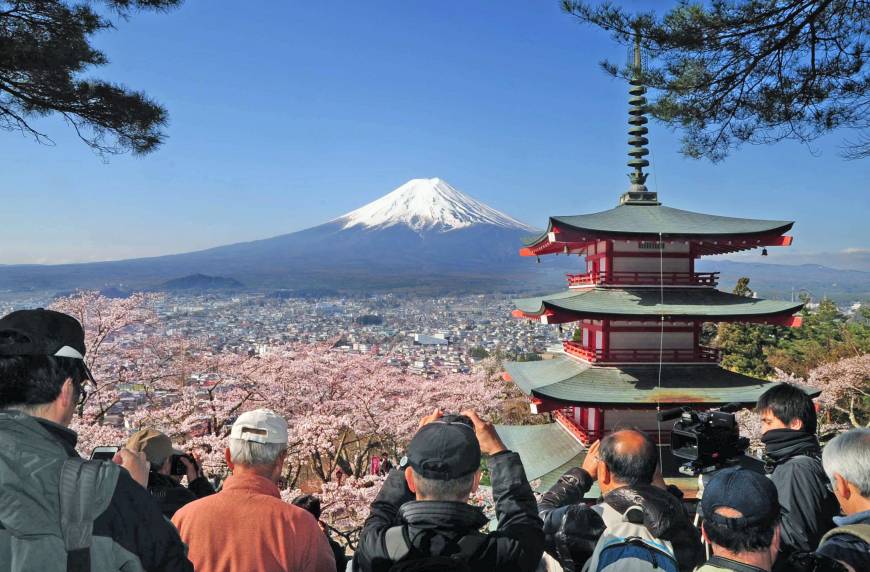Tuesday, January 2, 2024

After a three-year struggle during the pandemic, Japan’s tourism industry rebounded in 2023.
The government accelerated the normalization of business and social activities.
A major driving force for the industry was the reopening of the border. It has sparked a renewed influx of international tourists.
Backed by that trend, Japan is set to see an influx of new accommodation offerings in the coming years as both domestic and foreign players ratchet up investments.
In October, Japan saw 2.51 million foreign visitors, exceeding the comparable figure in pre-pandemic 2019 for the first time.
The figure was achieved even though the number of Chinese visitors, who had accounted for the largest share in October 2019, was still down about 65%.
France-based Accor, one of the leading international hotel chains, has seen a recovery of guests in Japan mainly due to the return of foreign travellers.
All of its hotels exceeded the 2019 business levels since June last year.
Dean Daniels, the firm’s vice president of operations and the head of Accor’s Japan business said this.
Since Japan was slow to reopen its borders, there seems to be robust pent-up demand to visit the country. It has also been helped by the historically weak yen over the past year, making Japan a more cost effective destination, Daniels said.
Accor believes that Japan will continue to attract more inbound tourists, with the government setting a goal of attracting 60 million foreign visitors annually by 2030.
Prior to the pandemic, Japan’s record high was 31.8 million in 2019.
The French firm, which first entered Japan in 2000, just opened a new hotel under the Mercure brand in Tokyo’s Hibiya district last month but it intends to stretch its business further.
Last July, Accor and Daiwa Resort announced that Accor will be rebranding and managing the operation of Daiwa Resort’s 23 hotels in Japan starting this spring.
The move will double the number of hotels operated by Accor in Japan.
Accor has focused mostly on major cities such as Tokyo, Osaka and Sapporo, but the partnership with Daiwa Resort will allow the firm to expand its presence to more nature-oriented tourist destinations, such as Nasu in Tochigi Prefecture, a well-known ski resort, and Beppu in Oita Prefecture, a popular hot-spring spot.
On top of that, Accor will also be rolling out its first luxury hotel under the Fairmont brand in Japan in fiscal 2025.
“There is a strong push for us to provide more luxury experiences within the Japanese market, which will be a focus moving towards 2030,” Daniels said.
Hyatt, another global hotel chain, also sees opportunity in Japan.
With the expectation that travelers’ interest in Japan will continue to grow, Hyatt is planning to introduce several more hotels in the coming years as well.
The U.S.-based hotel chain opened Hotel Toranomon Hills in Tokyo last month and two more hotels are scheduled to debut in Tokyo and Osaka this year.
In addition, it is also set to launch a new brand named Atona for traditional ryokan-style accommodations starting in 2026.
Hyatt claimed that it is a “unique attempt” for a global hotel chain to produce ryokan-style accommodations, adding that the firm will be partnering with Kiraku, a Kyoto-based company that produces projects to utilize natural and cultural resources of local areas in Japan.
Foreign hotel operators keen to cultivate the Japanese market are not only major players from Western countries — operators from other parts of Asia are also looking to raise their profile.
Thai-based Dusit International made a foray into Japan by opening two hotels last year and Singapore’s Capella Hotel Group is planning to roll out its first hotel in Japan in Kyoto in 2025.
Amid intensifying competition, hotels need to be able to provide their own unique experiences while taking advantage of reputation and trust as a global hotel operator, he said, adding the launch of the Atona brand is in line with that strategy.
Although the potential of Japan’s hotel market is drawing more foreign chains, some domestic players are also betting on tourism growth.
Tokyo-based Nippon Steel Kowa Real Estate decided during the pandemic to make a foray into the hotel market with a belief that inbound tourism would come back once COVID-19 subsided.
The firm is planning to invest about ¥50 billion in the next five years so it can open hotels to offer a total of about 1,000 rooms.
The barrage of planned openings of accommodations by foreign and domestic hotel operators are in line with investors’ growing appetite for hotels since last year.
Sunday, April 28, 2024
Sunday, April 28, 2024
Monday, April 29, 2024